
Related
Guests
- Malia Villard Appoloncoordinator of KOFAVIV, the committee of women for survival.
Something that gets lost in all the coverage of the Haiti earthquake is how people on the ground organize in the face of adversity. Rape and violence against women has become increasingly widespread in the tent camps across Haiti. While Haitian police and UN forces have done little, women on the ground are organizing to protect themselves. We spoke with Malia Villard Appolon, coordinator of KOFAVIV, the committee of women for survival. [includes rush transcript]
Transcript
AMY GOODMAN: Lost in all this coverage of the Haiti earthquake is how people on the ground are organizing in the face of adversity. Rape and violence against women and girls has become increasingly widespread in these tent camps of thousands and tens of thousands of people. While Haitian police and UN forces have done little, women on the ground are organizing to protect themselves. We spoke with Malia Villard Appolon, the coordinator of KOFAVIV, the commission of women victims for victims.
AMY GOODMAN: What is it like in the Champ de Mars camp, in the refugee camp?
MALIA VILLARD APPOLON: [translated] That’s a camp which has a lot of difficulties in it. The government doesn’t take any measures to provide security there. That’s why we saw a lot of problems of security there, because there’s no police presence. It’s us, as civilians in the camp, who took the initiative to put in place a committee of protection to protect the women against the sexual violence they were under, experiencing.
AMY GOODMAN: What about the number of rapes in the camp?
MALIA VILLARD APPOLON: [translated] In the case of Champ de Mars only, there were twenty-two cases of rape.
AMY GOODMAN: When? From when to when?
MALIA VILLARD APPOLON: [translated] From the 12th of January until today. So, we left Champ de Mars since the beginning of July. There was people, escaped convicts, who were giving us trouble after I came back from a conference in Geneva, who pulled guns on us to make us give them money, and they also carried out many cases of rape. We had to leave that camp. And now we are here in the office of the international lawyers that we live, until we can move to find a house for us to live in.
AMY GOODMAN: So you’re living in the offices of your lawyers?
MALIA VILLARD APPOLON: [translated] Yes, I live in the office of my lawyer, while I wait.
AMY GOODMAN: So, tell us how women can protect themselves.
MALIA VILLARD APPOLON: [translated] There really is no protection today. What we do only, we can say, so many women we saw being victims, there was only the bureau of international lawyers who took the initiative to put in place a system of whistles, which they gave to KOFAVIV. And the KOFAVIV gave these whistles to the women in the camp in Champ de Mars, and not only in the Champ de Mars, but all the other camps where our community agents are. And there was a little information that had been given even before these little whistles were given. The action call is for when you hear a whistle, everybody knows the sound, and after — and you hear the whistle, everybody comes to their aid, to where it’s whistled. This is even if somebody is armed, they’ll run away. And with the committees we formed with some of the men who were conscious of this problem, they offered to not sleep at night so that they could provide civilian protection for women at night. And we don’t do that just in the Champ de Mars camp, but in other camps, as well. And Sainte Anne’s is one example. They also have a committee formed for that. We have to do that, because we have no government, basically. It doesn’t have any responsibility to anybody. Maybe for the people who voted to put it in power and also the police. Even here in the office of international lawyers, we brought a lot of cases, but until now, they haven’t apprehended any of these people who are in fact escaped convicts. The police are supposed to be there to serve and protect. And when I brought them for a warrant, they said I had to accompany them, for me to go look for this escaped convict who pulled a gun on me in the camp. That means the government has no responsibility. So it means the people have to give themselves security. And this is after a lot of violence. Because if I had partisans who would come there, they would have killed them, too. And this country, this is where human rights are not respected, and that’s why the situation is like that. The criminals know that whatever they do, there’s no justice system which will judge them and pursue them.
AMY GOODMAN: Can you blow the whistle for me, show us how it works?
MALIA VILLARD APPOLON: [whistles] C’est comme ça. [translated] And that means you can blow this whistle, and everybody knows it. This is our call to action.
AMY GOODMAN: Malia Villard Appolon, the coordinator of KOFAVIV, the committee of women for survival, speaking to us in Port-au-Prince.

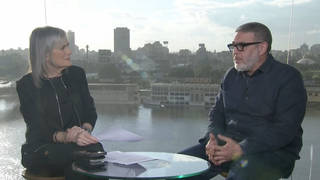
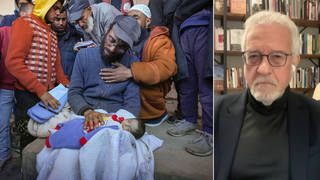







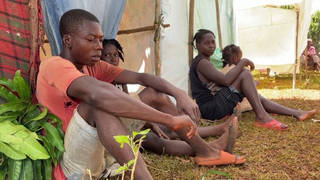
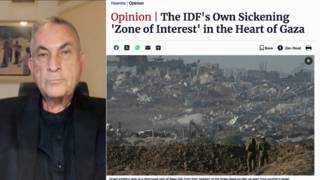
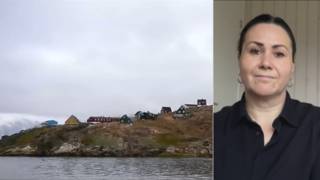
Media Options